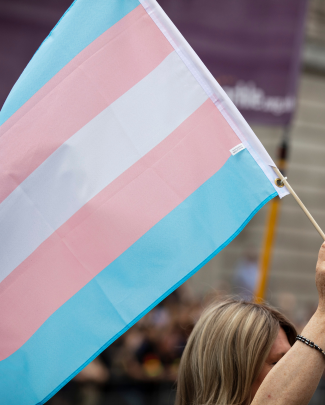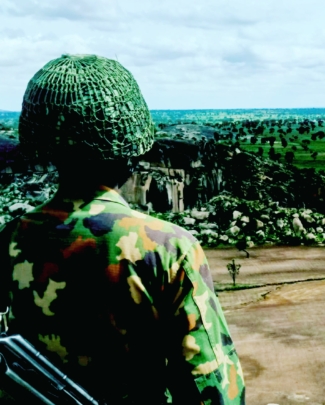UNDERSTANDING COMMUNISM’S EVILS THROUGH STORIES OF VICTIMS
YOU NEED TO KNOW ABOUT THE PRO-LIFE PLAY “VIABLE”
AFTER A TRAGEDY: CO-WRITING A NEW STORY WITH GOD
ONE OF THE GREATEST GIFTS YOU CAN GIVE IS YOUR TIME
STERILIZING CHILDREN–SD BUSINESSES SAY IT’S GOOD FOR THE ECONOMY!
UNDERSTANDING COMMUNISM’S EVILS THROUGH STORIES OF VICTIMS
On February 9, 1940, seven-year-old Witold Rybicki and his family awoke in the middle of the night to banging on the door of their home in Lida, Poland (modern Belarus). Outside was an officer of the Soviet secret police, then called the NKVD, who gave his father orders: “Do not run away. Your house is surrounded by soldiers. You have an hour to pack your personal belongings. Do not worry about bringing much. Everything you need will be at your destination.”
The Rybickis were never informed of charges against them, evidence of wrongdoing, a sentence, or their destination. Witold, his parents, and four of his siblings were taken from their home to a train station, where they were loaded into a cattle car about 15 meters long by five meters wide along with about 40 other people. The car was completely bare otherwise, with just a hole in the middle of the floor for a toilet.
For nearly a month, the train traversed Eastern Europe and Russia toward Siberia, not allowing anyone outside of the cramped, filthy cars except for a short period on Saturdays. Every morning, soldiers delivered four gallons of water and one of soup for the entire car of 40 people.
The prisoners finally disembarked in a city called Tomsk. From there, they walked two days through the Siberian taiga (forest) in the dead of winter to a set of barracks with small, barren rooms built specifically for Poles. This was part of the Soviet gulag system, a chain of forced-labor camps and settlements where tens of millions of prisoners were punished and “reeducated” by the state through grueling physical labor in harsh conditions.
This account of life under Soviet rule is not an extreme outlier, but indicative of how the communist regime treated its own people. This week marks 100 years since the revolution that gave rise to communism in Russia and, subsequently, Eastern Europe, Asia, Africa, and Latin America. Avowedly Marxist regimes killed anywhere from 65 to 100 million people, a total so high that it is impossible for the human mind to conceptualize.
So goes the apocryphal Joseph Stalin quote, “One death is a tragedy; a million deaths is a statistic.” A good way to grasp the breadth of communism’s evils is to understand the depth of the suffering in the lives of its individual victims. That’s why the stories of the Rybickis and others are apropos.
The Rybickis’ plight is eerily similar to the famed accounts catalogued by Aleksandr Solzhenitsyn in “The Gulag Archipelago.” From the psychologically poignant nighttime arrest without explanation, to the inhumane transport by cattle car, to hard labor under-clothed in the bitter cold, to the starvation, to the omnipresent stench of death, to the totalizing oppression even outside of the gulags, the parallels between Witold’s story and other victims’ are striking.
The Union of Soviet Socialist Republics (USSR) and Nazi Germany invaded Poland in September 1939 and partitioned the country in two. The USSR deported to Siberia about one and a half million of the 13 to 14 million Poles in the eastern half of the country. Hundreds of thousands of them died or were executed in the process. Over decades, millions of kulaks, Cossacks, Ukrainians, Kazakhs, Soviet veterans, and Orthodox Christians, among others, suffered similar fates. The USSR killed 20 to 30 million of its own people in total.
Those who were considered educated, middle class, overtly religious, or had served in the military were the primary targets, according to Witold, because they were broadly viewed as threats to the communist regime. His father, Stanislaw, was a Polish veteran who owned a small farm, so off to the gulag system he and his family went.
A few months later, the Rybickis were moved even farther east, by train to the last city on the tracks, then by foot to another nondescript set of barracks in the middle of the Siberian taiga. It was a new labor settlement, where they would stay for three years.
In the Rybickis’ settlement, able-bodied prisoners above the age of 12 worked felling trees, preparing lumber, and collecting sap in weather that would sometimes fall to 50 below zero degrees Celsius. The laboring prisoners were given a ration of 400g of bread daily, roughly 1,200 calories, while non-working prisoners were given 200g, a measly 600 calories. Sometimes food shipments would get delayed to the camps, and prisoners like the Rybickis would go days without eating.
“We were practically starving to death,” Witold recalls. Some prisoners had “swollen, huge bellies” from hunger. Prisoners were “dying like flies all around” from hunger, disease, or being worked to death. There was a makeshift cemetery by the settlement where “hundreds and hundreds were buried.”
Your Choice: Death By Enlistment Or In Prison
Witold’s sister, Irena, who was 14 when the Soviets deported their family, eventually refused to work because she didn’t even have shoes to wear. She was sentenced to three months in a prison in Novosibirsk where she survived by the graces of a better-situated, older male prisoner.
Upon Irena’s return, she was badly shaken, exclaiming she “had enough of Russia, communism, and Siberia, and was running away,” which she did. A year later, her father discovered that authorities had captured her trying to cross into Iran and sentenced her to seven years in prison. Because the USSR was in the throes of a brutal war with Nazi Germany, it gave prisoners like her a choice to risk likely death on the front lines of the eastern front or in a harsh, small, cold prison cell. By great fortune, she survived the war, fled to the West at the end, and got documentation to emigrate to the United States.
Later, Witold’s father also went to war in service of the Soviet Union under a program that got his family moved to a collective farm with slightly better living standards than the settlement, in addition to a promise of repatriation to Poland after the war.
Witold said it was the only promise Stalin ever kept. In April 1946, almost a year after the war in Europe ended, the Rybickis were permitted to move back to Poland because of their father’s service. By some act of God, every member of their family survived the war and the Gulag system. For millions of other Soviet citizens fighting the war and millions more repressed by their own government, such was not the case.
You Must Never Forget Our Stories
In 1966, Witold was able to escape communism to the United States, by another stroke of luck, and reconnected with his sister. My step-grandfather is 85 now and lives with his wife in Illinois, where he is still a practicing anesthesiologist. He recalls the details of his family’s repression nearly 80 years ago better than I can recall what I did eight days ago. It would behoove our society, and the entire world, to better remember the evils of communism 100 years since.
Stories like the Rybickis’ sometimes don’t resonate with Western audiences because the material depravation foisted upon them is unimaginable to us. As Solzhenitsyn wrote, “[It’s impossible] for Western authors…to describe the perturbation of a human soul placed in a cell filled to twenty times its capacity and with no latrine bucket, where prisoners are taken out to the toilet only once a day.”
Solzhenitsyn’s stories about NVKD officers coercing confessions from innocent prisoners by crushing their testicles underneath the officer’s jackboot are ghastly to even try imagining. So too the mass executions carried out by binding, gagging, and burying prisoners alive, because it was more efficient than shooting them first. However, it is difficult to fully comprehend for Westerners who have not experienced immense and continuous physical pain. Thus, it is also worth considering the damage done to the human soul beyond the gulags.
“The USSR was one big camp,” cites Solzhenitsyn of one of its victims. Totalitarian repression in the USSR was not consigned to the war years or the gulags or the Stalin years. It lasted straight through from 1917 to 1991. Back in Poland in the early 1950s, a classmate of Witold’s who started a quasi-patriotic club at their high school was accused of spying against the government and sentenced to five years in prison. He was never the same after his release and scared of every conversation thereafter.
“Whatever was spoken,” Witold recalls, “was spoken in secret, because there were even situations when so-called friends would report you to police and…even if you didn’t say it…you were arrested.” Solzhenitsyn wrote that “in conflicts between people in freedom, denunciations [to the authorities] were the superweapon….and it always worked.” They were used for romantic gain, material gain, and anything else you can imagine.
(Excerpt from the Federalist. Article by Ryan Fazio.)
Partner with Us
Intercessors for America is the trusted resource for millions of people across the United States committed to praying for our nation. If you have benefited from IFA's resources and community, please consider joining us as a monthly support partner. As a 501(c)3 organization, it's through your support that all this possible.


We use cookies to ensure that we give you the best experience on our website. If you continue to use this site we will assume that you are happy with it. Privacy Policy




Comments
Father God,
Please wake up people in the United States to the evils of communism and that socialism is just a step away.
LORD, especially I pray for young people who did not experience the Cold War and the fear, who did not see German youth killed for trying to cross the wall between East Berlin and West Berlin, those who have never done without the most basic necessities.
Help them turn to You and Your Truth.
Give them understanding that a one-world government is not Your plan. Grant Your Church in America great discernment. Raise up good shepherds to teach Your people.
Help the Body of Christ in America stop pursuing comfort and pleasure. Help us use our time and resources wisely to advance Your Kingdom both here in the United States and around the world.
Our time on earth is short but eternity is long. Give us hearts and minds filled with Your wisdom. Have mercy on us in the name of Jesus that we and our descendants never experience the horrors of totalitarianism.
I praise Your Holy Name, Your power, Your faithful love. Amen.